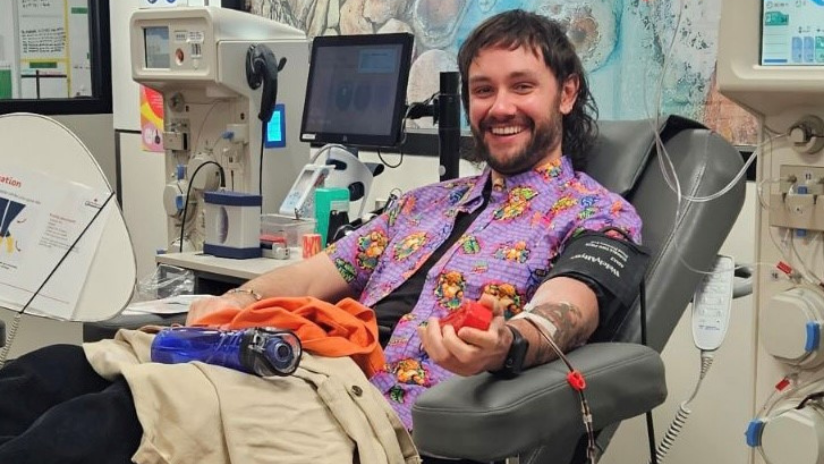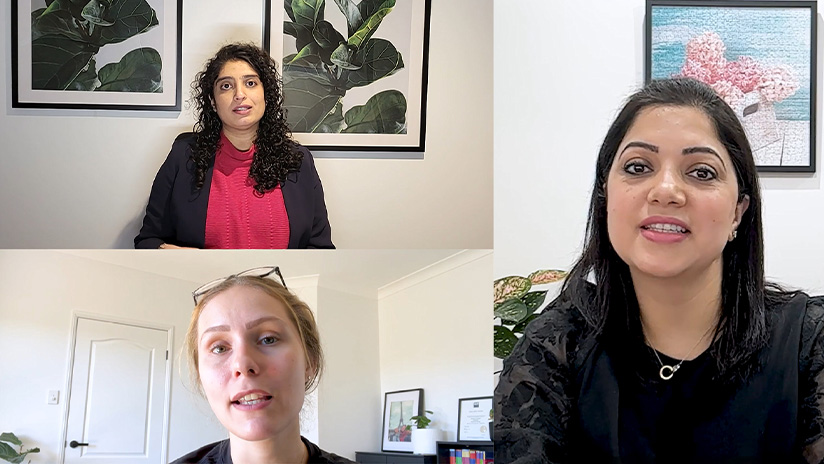If not now, when? The lifesaving work that is blood donation
Your employer, like Telstra, may even offer blood donor leave, or at the very least, support you with the time off needed for your next visit.

While many people think about donating blood, the bigger question is discovering who actually follows through with action and how often this occurs. It’s often the case that people have misconceptions that can hold them back from donating blood.
Lifeblood's latest 'State of Donation' survey showed that only 3% of people donate blood. Yet it’s staggering to consider that 1 in 3 people will need donated blood in their lifetime. With such a pressing demand for blood donations and the stark reality of even fewer donors, it is Lifeblood’s mission to educate the general public and get more donors on board. As a huge advocate for blood donation and a Lifeblood Champion, I wanted to highlight some exciting rule changes and facts surrounding blood donation in Australia.
The lowdown on blood donation
If you’re not currently a blood donor but are considering it, you might be interested to know that some of the rules around donating blood have changed. For example, did you know that getting a tattoo does not disqualify you from donating? You can donate plasma immediately or wait a week to donate whole blood or platelets, as long as you were tattooed in a licensed parlour in Australia. If you lived in the United Kingdom between 1980 and 1996, you are now permitted to donate blood, regardless of your citizenship status. LGBTQI+-identifying individuals are welcome. On top of that, Lifeblood has made a submission to remove sexual activity rules for plasma donations, which has since been approved by the Therapeutic Goods Administration! While there is still a process underway to amend the sexual activity rules, it’s worthwhile reviewing Lifeblood’s website to check eligibility. Additionally, even individuals who have had COVID-19 are only required to wait seven days after fully recovering before donating blood!
But there are still some rules that stand
There are certain times when you can’t donate, however. These times include:
- When experiencing a cold or flu, which is more prevalent in the colder months.
- When facing upcoming or recent surgeries and operations. In a cruel irony, the most frequent users of blood and blood products are people facing cancer and blood diseases as well as those undergoing treatment, accounting for 34% of total donations.
- When taking medications whether these are on a one-off basis or ongoing.
- When you’ve recently travelled…
- and travel tattoos! A tattoo can result in a four-month suspension from the donor chair.
- Factors such as weight, sexual activity, and pregnancy/childbirth (for female donors) can also disqualify potential donors.
Hint: It’s easy to check your eligibility by completing this online quiz.
Keeping the blood supply flowing
A division of the Australian Red Cross Society, Lifeblood’s sole mission is to keep the blood flowing across Australia. What we’ve discovered is that most people are not aware of the vital role blood donation plays until they know someone who has an urgent need for blood.
Did you know that a blood donor can make 26-27 plasma and 4-5 whole blood donations per year? The demand for blood is continuous, with 33,000 donations required each week. Take a moment to think about that and consider booking an appointment.
Lifeblood makes the donation process incredibly easy and accessible with 95 static, mobile, and pop-up centres available. “Donate with a friend”, Lifeblood’s latest app feature enables donors to book joint appointments with family and friends. Lifeblood’s donor centre teams and online resources can also provide you with tips on how to relax and ways to overcome initial nerves around needles or blood.
Lifeblood is here to help prepare you for the best possible donation experience whether it’s your 1st, 40th or 400th visit! Giving back to your community is easy, and you’re welcomed by a team who will support you throughout this process.
If not now, when? Take the opportunity to do something life-changing and head over to the Lifeblood website to discover more about how to get involved and sign up.
Your employer, like Telstra, may even offer blood donor leave, or at the very least, support you with the time off needed for your next visit.


